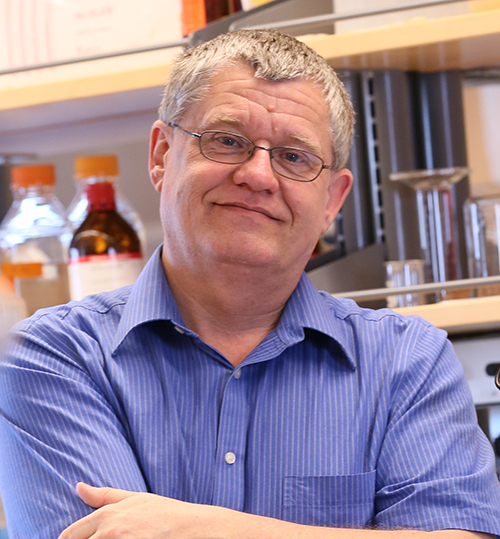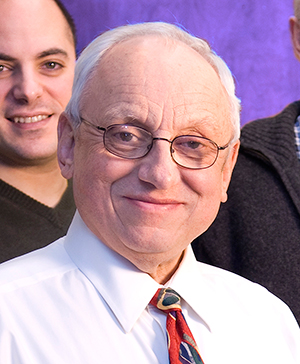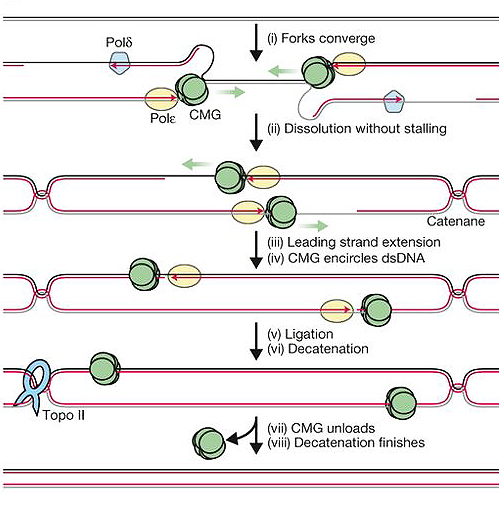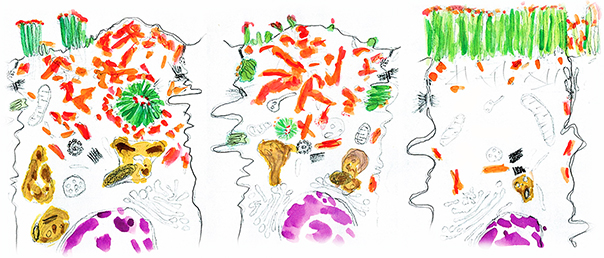Stephen Doster
-

Study explores genetic risk profiling of insomnia in autism
by Kelsey Herbers Researchers from the Vanderbilt Genetics Institute and the Vanderbilt Kennedy Center are partnering to examine how genes affect sleep and circadian disturbances in autism spectrum disorder (ASD) with a goal of creating a genetic risk profile of insomnia in ASD. The study, funded by autism advocacy organization… Read MoreNov. 15, 2019
-

Blueprint for treating epilepsy
Nov. 14, 2019, 11:00 AM by Bill Snyder Proteins that move electrically charged ions of sodium, potassium and chloride across the cell membrane are vital for the control of cell volume — the amount of water inside the cell and regulation of intracellular chloride. In central neurons, cation-chloride cotransporters, proteins… Read MoreNov. 15, 2019
-

Endotoxin shock protector
Nov. 5, 2019, 8:30 AM by Bill Snyder The bacterial toxin lipopolysaccharide (LPS) is one of the most potent virulence factors of Gram-negative bacteria that cause sepsis. Exposure to even tiny amounts can trigger a systemic — and potentially lethal — inflammatory response known as endotoxin shock. Proinflammatory SRTFs (stress-responsive… Read MoreNov. 15, 2019
-

Making ends meet, and how to avoid a (replication) hangover
By Alexandra Fuller Model of vertebrate replication termination. Adapted with permission from Dewar et al. Nature 2018; 525:345–350. DOI: 10.1038/nature14887. You might break chicken eggs for your breakfast, but the lab of James Dewar (Biochemistry) breaks frog eggs to better understand the mechanisms cells use to terminate DNA replication. Published… Read MoreNov. 8, 2019
-

When G-actin is set free
By Cayetana Arnaiz Yépez Super-resolution images of two human epithelial cells. Fluorescence intensities are heatmapped to facilitate visualization; warmer colors correspond to higher levels of the cytoskeletal protein, actin. Image courtesy of Matt Tyska. Cells along our intestinal tract are responsible for absorbing nutrients and acting as a barrier to… Read MoreNov. 7, 2019
-

The discovery of worms’ many spines
By Natalya Ortolano Confocal laser scanning microscopy image of the dorsal cord of a young adult showing a VD motor neuron with spine-like protrusions, and a close-up of the spines. Figure reproduced and modified under a CC BY 4.0 license from eLife 2019;8:e47918. When Nobel laureate Santiago… Read MoreNov. 7, 2019
-

Imaging host-pathogen battle for metal
Oct. 31, 2019, 11:00 AM by Leigh MacMillan Bacterial pathogens require nutrient metals to survive and cause disease, and hosts try to protect themselves by hiding metals away — a process called “nutritional immunity.” Bacteria have evolved multiple strategies for getting the metals they need, including the secretion of small… Read MoreNov. 1, 2019
-

Vanderbilt investigators lead effort to create map of the human kidney
Oct. 31, 2019, 9:42 AM by Bill Snyder Diabetes is the leading cause of end-stage renal disease, one of the nation’s most debilitating and expensive medical conditions. In 2016 Medicare spent $35 billion caring for more than 725,000 Americans whose kidneys had failed. Short of mandating universal diabetes treatment,… Read MoreNov. 1, 2019
-

Rathmell lands award from Lupus Research Alliance
Oct. 31, 2019, 9:25 AM Jeffrey Rathmell, PhD, has been named to receive a distinguished innovator award from the Lupus Research Alliance. (photo by Susan Urmy) by Tom Wilemon Jeffrey Rathmell, PhD, director of the Vanderbilt Center for Immunobiology and Cornelius Vanderbilt Professor of Immunobiology, is a 2019 recipient of… Read MoreNov. 1, 2019
-

Help! Microvilli trapped inside cells!
By Colbie Chinowsky Drawing of two enterocytes representing Microvillus Inclusion Disease (left and center) and a healthy enterocyte with its microvilli on its apical side. Adapted with permission from Vogel, GF, Janecke, AR, Krainer, IM, Gutleben, K, Witting, B, Mitton, SG, Mansour, S, Ballauff, A, Roland, JT, Engevik, AC, Cutz,… Read MoreOct. 28, 2019